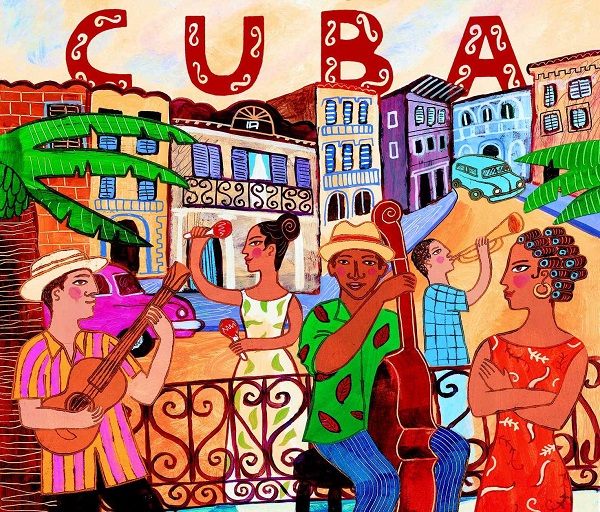12.19.17 Leyanis López Luque

Leyanis López Luque, Cuban singer, was born on October 8, 1971, in the eastern province of Guantánamo. At just seven years old, she began singing in the Fabio Rosell del Río Choir at her primary school. She quickly distinguished herself with her natural singing talent, performing as a soloist at various cultural events with several musical groups within her pioneering organization.
Since 1980, she began perfecting her vocal skills by regularly participating in festivals such as the José Martí Youth Tribute Festival and national summer festivals. In 1984, she was selected as a cultural representative at the Federation of Cuban Women (FMC) Congress held in Havana.
Supported by her teacher, María Balón, and the instruction of art instructor Angel Savón, Leyanis López performed at the 1985 Summer Festival with the group Ismaelillo, where she won first prize. In 1986, she began her first trips abroad. Her first performance outside of Cuba was in Hungary, where she represented Cuba at the International Festival of Amateur Artists. She later traveled to Czechoslovakia and the Federal Republic of Germany. For the young singer, 1988 was a very important year, as she achieved great success as an amateur artist.
Leyanis López’s professional singing career began in 1989, performing at the Boleros de Oro Festival, the Rafael Inciarte Brioso Popular Music Festival, and other guitar trio festivals. From that year on, the young artist began performing with trios and orchestras at various art centers, toured nationally, and began appearing on Cuban television. She also recorded for Japanese television and for CMQ Internacional at the EGREM studios in Santiago de Cuba. She studied singing at the Center for Professional Development of Artists in Guantánamo Province and was certified as a first-level professional singer in 1994.
In 1998, after an audition with producer José Da Silva, president of the French record label Lusáfrica, she recorded her first CD under the label, which already considered her one of the stars of its catalog and is represented in Cuba by the Ministry of Culture’s RECSA agency. The album, titled “Como la Mariposa,” occupied the top ten most-streamed world music charts in France for six weeks (along with Manu Chao) and earned Leyanis López a place among the most promising figures in the music world, according to specialized magazines, following her first promotional tour through France, Switzerland, Belgium, the Netherlands, and Portugal. Among the various venues where she performed during the tour was the Olimpia in Paris, in a show headlined by another of Lusáfrica’s stars, the famous Cape Verdean artist Cesaria Evora.
Her second album, “Mi corazón y yo,” was recorded in 2002. The album was critically acclaimed, with praise for its musical and poetic value. With excellent arrangements by maestro Joaquín Betancourt, the CD features twelve tracks that perfectly blend tradition and modernity.
Lusafrica recently released Leyanis López’s new CD, “Corazón presumido,” where the talented musicians accompanying him achieve a perfect fusion of aesthetic values and authentic Cuban sentiments. The album includes songs, bachatas, waltzes, and sones in thirteen tracks by prominent composers, including Polo Montañés, Israel Martínez, and David Álvarez, the latter of whom also handled all the album’s arrangements and musical production. A music video for the title track is already planned.
Along with other prominent figures in Cuban music, Leyanis López participated in the well-deserved recognition of Catalan singer-songwriter Joan Manuel Serrat through the album “Tribute to Serrat,” in which she performed the song “Your Name Tastes Like Grass.”
In June 2011, Leyanis López performed in the city of Morón, in an event that will be held biannually starting this year and sponsored by the Union of Writers and Artists of Cuba (UNEAC) to compensate for the absence of the International Boleros de Oro Festival. During the performance, maestro Pedro Pardo Barbosa conducted the orchestra of the local Concert Band, which also featured other renowned local artists such as Ángel Bonne, Yolanda Fernández, Dislenny Maza, Dayanis Gutiérrez, Nelson Mora, and Lucy Safonte, as well as art instructors from the José Martí Brigade and the Haydeé Santamaría Cuadrado Cultural Center.
The beautiful timbre and power of her voice allows Leyanis López to include in her repertoire genres ranging from song, bolero, and waltz to guajira, guaracha, and son montuno, imbuing each with the same feeling and passion, for which she has been recognized as one of the great revelations of Cuban songwriting.








